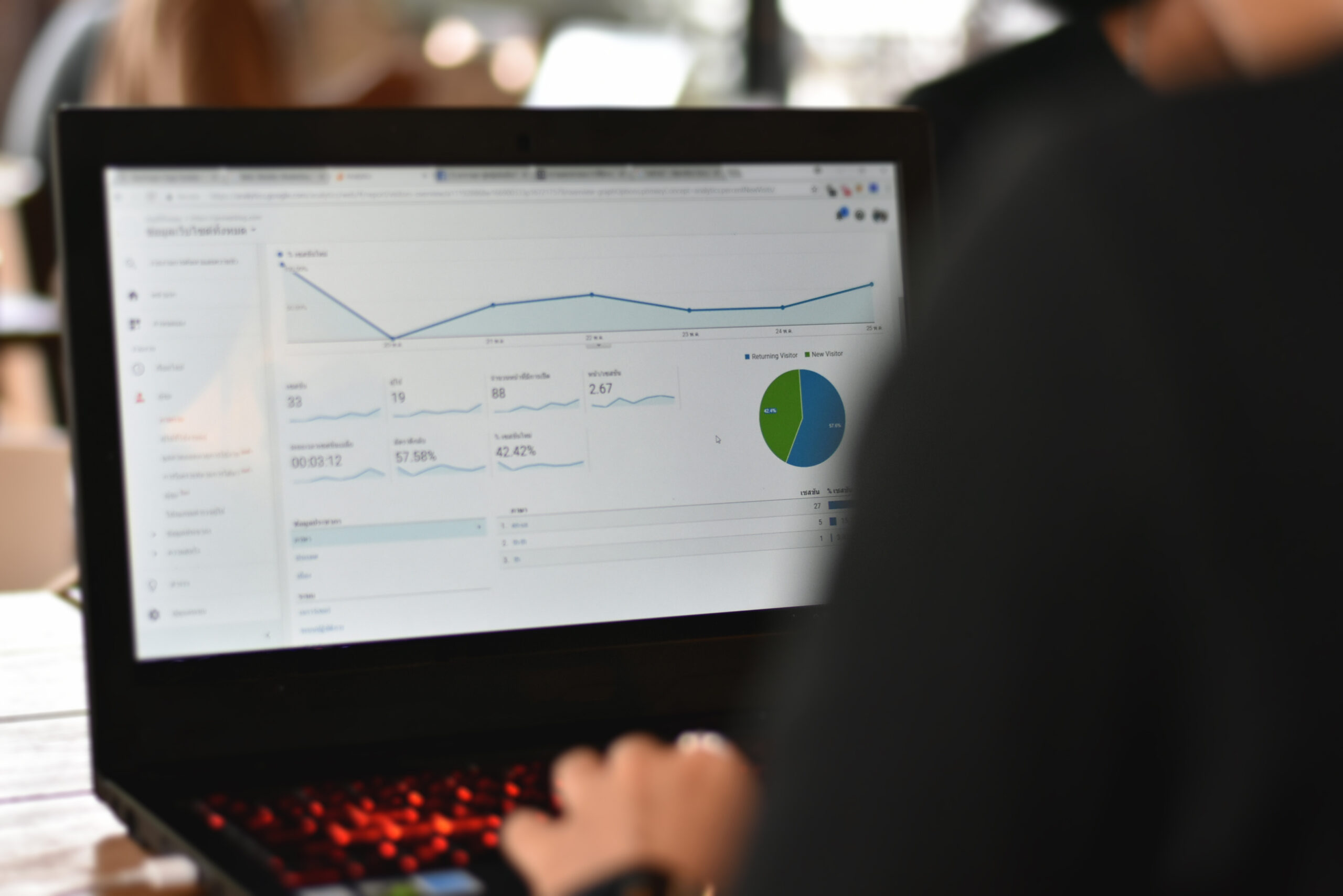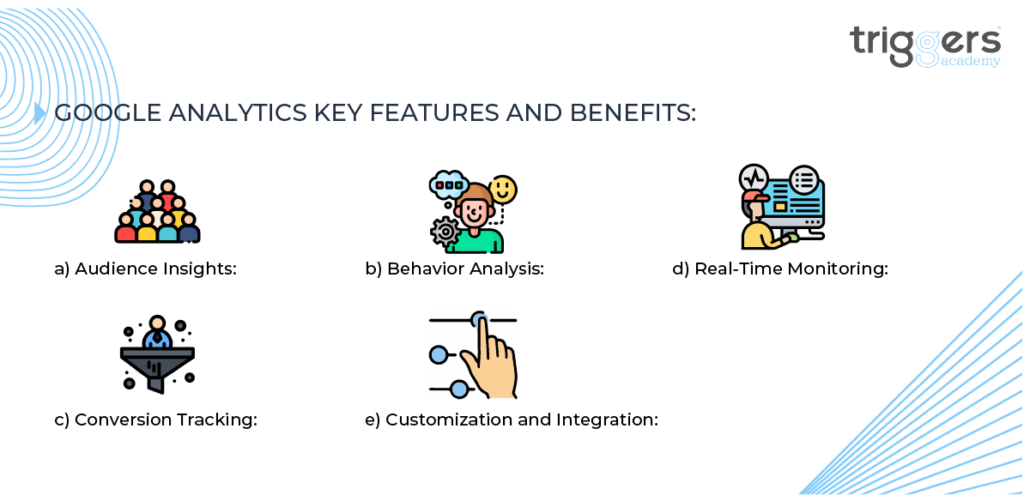
In the digital age, data has become the cornerstone of effective decision-making and strategic planning. Whether you have a website, a mobile app, or an e-commerce platform, understanding your audience and their behaviour is crucial to your success. This is where Google Analytics steps in as a powerful tool that empowers businesses to unlock valuable insights and make data-driven decisions. In this blog post, we will delve into the world of Google Analytics and explore its key features, benefits, and how it can revolutionize your online presence.
Google Analytics is a web analytics service offered by Google that provides comprehensive data and insights about website traffic, user behaviour, and conversion rates. It allows businesses to track and measure the performance of their online presence, gain a deep understanding of their audience, and make informed decisions to optimize their digital strategies.

a) Audience Insights:
Google Analytics provides valuable demographic information about your visitors, including their age, gender, location, and interests. This data helps you tailor your content and marketing campaigns to specific target audiences, resulting in better engagement and conversion rates.
b) Behavior Analysis:
With Google Analytics, you can analyze how users navigate through your website or app, what pages they visit, and how long they spend on each page. This behavioural data helps you identify areas for improvement, optimize your user experience, and increase conversions.
c) Conversion Tracking:
One of the most powerful features of Google Analytics is its ability to track conversions. Whether it's completing a purchase, submitting a form, or signing up for a newsletter, you can set up goals and measure the success of your conversion funnels. This information enables you to identify bottlenecks, refine your strategies, and maximize your ROI.
d) Real-Time Monitoring:
Stay updated with real-time data on the number of active users, traffic sources, and content popularity. This feature allows you to respond promptly to emerging trends, make instant optimizations, and seize new opportunities.
e) Customization and Integration:
Google Analytics offers extensive customization options, allowing you to tailor reports, set up custom dimensions, and create segments based on your unique business needs. Moreover, it seamlessly integrates with other Google tools like Google Ads, Google Tag Manager, and Data Studio, enabling a unified and holistic view of your online presence.
a) Account Setup:
Sign up for a Google Analytics account and follow the step-by-step instructions to set up your tracking code. This code needs to be added to each page of your website or app to start collecting data.
b) Defining Goals:
Clearly define your business goals and set up corresponding goals in Google Analytics. Whether it's increasing sales, generating leads, or driving engagement, having well-defined goals helps you measure success accurately.
c) Configuring Reports:
Customize your reports to focus on the metrics that matter most to your business. Google Analytics offers a wide range of pre-built reports, or you can create custom reports tailored to your specific needs.
d) Analyzing and Taking Action:
Regularly analyze your data, identify trends, and take action based on the insights you uncover. Experiment with different strategies, track the impact and continuously optimize your digital presence for better results.
Google Analytics offers advanced features that further enhance your data analysis and decision-making process. These include:
For businesses operating online stores, you can monitor sales, revenue, and product performance. This allows you to gain valuable insights into customer behavior and improve your e-commerce strategies.
You have the ability to track specific events on your website or application, such as link clicks or article shares. This enables you to measure visitor engagement and determine the effectiveness of different elements.
You can create intricate and sophisticated goals that require a series of actions to be tracked in order to achieve them. Examples of such goals include tracking the time spent on the website or the number of pages viewed.
You can delve into more detailed data about your audience, such as their interests, demographics, and geographical locations. This allows for a better understanding of your target audience and facilitates more targeted strategies.
Google Analytics is a game-changer for businesses looking to harness the power of data and gain a competitive edge in the digital landscape. By providing deep insights into audience behaviour, conversion tracking, and real-time monitoring, it empowers organizations to make informed decisions, optimize their online presence, and drive tangible results. Whether you're a small business, an e-commerce giant, or a content creator, integrating Google Analytics into your digital strategy is essential for success in today's data-centric world. So, embrace the power of Google Analytics and unlock the true potential of your online endeavours with our new Google Analytics course.